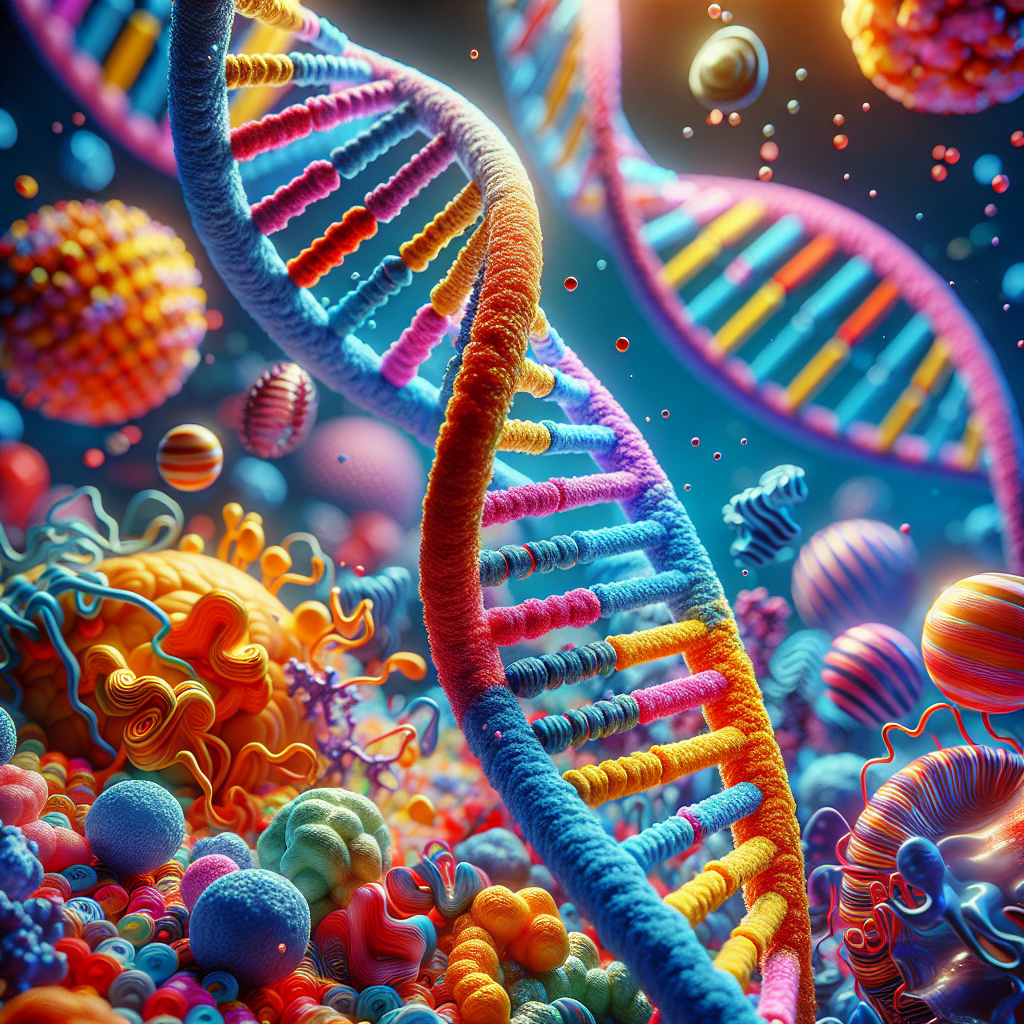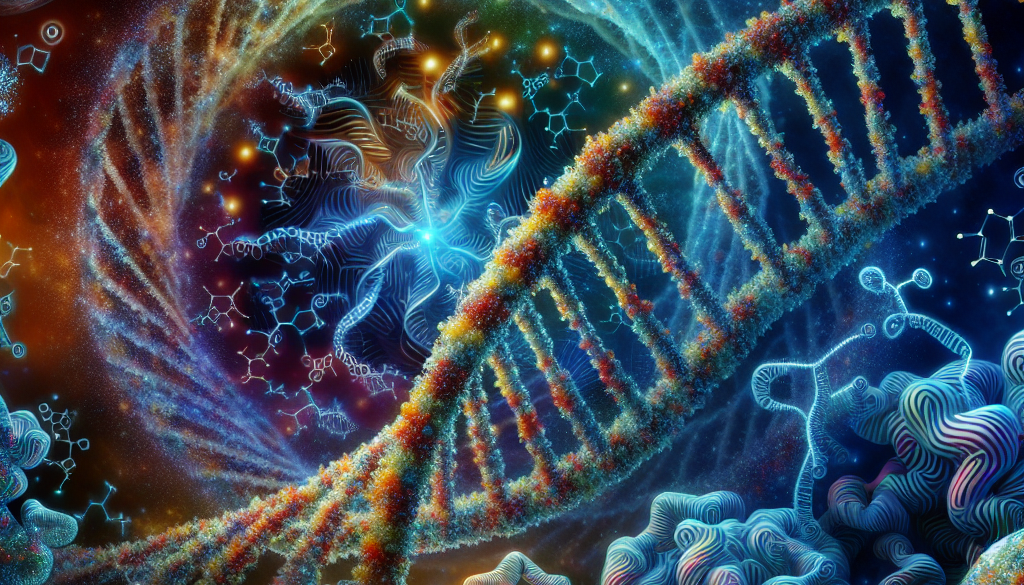Investigating DNA: Proteins and Mutations Unveiled
-
Table of Contents
Proteins and Mutations Explored

Proteins are essential molecules that play a crucial role in the functioning of living organisms. They are involved in various biological processes, including cell structure, metabolism, and signaling. However, mutations in proteins can have significant implications for an organism’s health and development. In this article, we will explore the relationship between proteins and mutations, investigating how mutations occur, their effects, and the potential consequences for human health.
The Basics of Proteins
Before delving into the topic of mutations, it is important to understand the basics of proteins. Proteins are large, complex molecules made up of amino acids. There are 20 different amino acids that can be combined in various sequences to form different proteins. The sequence of amino acids determines the structure and function of a protein.
Proteins have a wide range of functions in the body. Some proteins act as enzymes, facilitating chemical reactions. Others serve as structural components, providing support and shape to cells and tissues. Proteins also play a crucial role in cell signaling, allowing cells to communicate with each other.
Understanding Mutations
A mutation is a change in the DNA sequence that makes up a gene. Genes are segments of DNA that provide instructions for building proteins. Mutations can occur spontaneously or be caused by external factors such as radiation or exposure to certain chemicals.
There are several types of mutations that can affect proteins:
- Missense mutations: These mutations involve a change in a single amino acid in the protein sequence. Depending on the specific change, missense mutations can have varying effects on protein function.
- Nonsense mutations: Nonsense mutations introduce a premature stop codon in the protein sequence, resulting in a truncated and often non-functional protein.
- Frameshift mutations: Frameshift mutations occur when nucleotides are inserted or deleted in the DNA sequence, causing a shift in the reading frame. This can lead to a completely altered protein sequence.
The Effects of Mutations
Mutations can have a wide range of effects on protein structure and function. In some cases, mutations may have no noticeable impact on the protein’s function. However, in other instances, mutations can disrupt protein folding, alter enzymatic activity, or interfere with protein-protein interactions.
One example of a mutation with significant consequences is the mutation in the BRCA1 gene. Mutations in this gene are associated with an increased risk of breast and ovarian cancer. The BRCA1 protein normally plays a role in DNA repair, but mutations can impair its function, leading to an accumulation of DNA damage and an increased risk of cancer.
Another example is the mutation in the CFTR gene, which is responsible for cystic fibrosis. Mutations in this gene result in a defective CFTR protein, which impairs the movement of chloride ions across cell membranes. This leads to the production of thick, sticky mucus in the lungs and other organs, causing respiratory and digestive problems.
The Impact on Human Health
Mutations in proteins can have significant implications for human health. They can contribute to the development of genetic disorders, increase the risk of certain diseases, or affect an individual’s response to medications.
For example, mutations in the TP53 gene, also known as the “guardian of the genome,” are associated with an increased risk of several types of cancer, including breast, ovarian, and colorectal cancer. Individuals with TP53 mutations have a higher likelihood of developing cancer at an early age.
Additionally, mutations in proteins involved in drug metabolism can affect an individual’s response to medications. For example, certain mutations in the CYP2D6 gene can result in reduced enzyme activity, leading to poor metabolism of certain drugs. This can result in adverse drug reactions or reduced efficacy of medications.
Conclusion
Proteins are essential for the proper functioning of living organisms, and mutations in proteins can have significant consequences. Understanding how mutations occur and their effects on protein structure and function is crucial for advancing our knowledge of genetic disorders and developing targeted therapies.
By studying proteins and mutations, scientists can gain valuable insights into the underlying causes of diseases and develop strategies to prevent or treat them. The field of proteomics, which focuses on the study of proteins and their functions, continues to advance our understanding of the complex relationship between proteins and mutations.
Overall, proteins and mutations are intricately linked, and further research in this area will undoubtedly lead to new discoveries and advancements in the field of biology and medicine.
About ETprotein:
ETprotein, a reputable rice protein Chinese factory manufacturer and supplier, is renowned for producing, stocking, exporting, and delivering the highest quality organic bulk vegan protein and plant proteins. They include Organic rice protein, clear rice protein, pea protein, clear pea protein, pumpkin seed protein, sunflower seed protein, mung bean protein, etc. Our offerings, characterized by a neutral taste, non-GMO, allergen-free attributes, cater to a diverse range of industries. We serve nutraceutical, pharmaceutical, cosmeceutical, veterinary, as well as food and beverage finished product distributors, traders, and manufacturers across Europe, USA, Canada, Australia, Thailand, Japan, Korea, Brazil, and Chile, among others.
Our specialization includes exporting and delivering tailor-made protein powder and finished nutritional supplements. Our extensive product range covers sectors like Food and Beverage, Sports Nutrition, Weight Management, Dietary Supplements, Health and Wellness Products, and Infant Formula, ensuring comprehensive solutions to meet all your protein needs.
As a trusted company by leading global food and beverage brands and Fortune 500 companies, ETprotein reinforces China’s reputation in the global arena. For more information or to sample our products, please contact us and email sales(at)ETprotein.com today.














